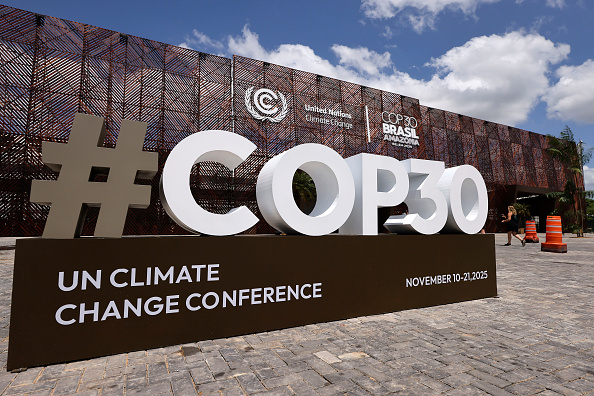COP30 summit president Brazil released a draft text for a proposed deal for this year’s U.N. climate summit early on Friday, dropping a proposal to develop a global plan to shift away from fossil fuels that had been included in an earlier version.
The issue has been one of the most contentious at the two-week conference of nearly 200 governments in Brazil’s Amazon city of Belem.
For days, nations have wrangled over the future of fossil fuels, whose burning emits greenhouse gases that are by far the largest contributor to global warming.
A first version of the draft deal earlier this week had contained a set of options for language on the subject.
Dozens of nations including Germany, Kenya and low-lying island states have been pushing hard for a “roadmap” laying out how countries should follow through with a promise made at COP28 two years ago to transition away from fossil fuels.
Saudi Arabia and other oil-producing nations were opposing this, negotiators at COP30 told Reuters. The Saudi government communications office did not immediately respond to an emailed request for comment.
In the text released before dawn on Friday, all mentions of fossil fuels had been dropped.
The text, which is still subject to further negotiation, would need approval by consensus in order to be adopted.
Brazil’s COP30 presidency held consultations with key negotiating blocs on Thursday, after a fire at the summit venue forced an evacuation that disrupted talks for hours.
The conference is scheduled to finish later on Friday, though talks could run overtime into the weekend as is common at the world’s annual climate negotiations.
CLIMATE FINANCE AND TRADE
The draft also called for global efforts to triple the financing available to help nations adapt to climate change by 2030, from 2025 levels.
However, it did not specify whether this money would be provided directly by wealthy governments, or other sources including development banks or the private sector.
That may disappoint poorer nations who want stronger guarantees that public money will be spent on this area.
Investments in adaptation – like improving infrastructure to cope with extreme heat, or reinforcing buildings against worsening storms – is often vital for saving lives but offers little financial return, making it difficult for such investments to attract private finance.
The draft deal would also launch a “dialogue” at the next three COP climate summits on trade, involving governments and other actors including the World Trade Organization.
That would be a win for countries including China who have long demanded that trade concerns be part of the world’s climate summit. But it may be uncomfortable for the European Union, as demands for such discussions have often focused on the EU carbon border levy. South Africa and India have criticized the levy and argued for it to be scrapped.
(Reuters)














